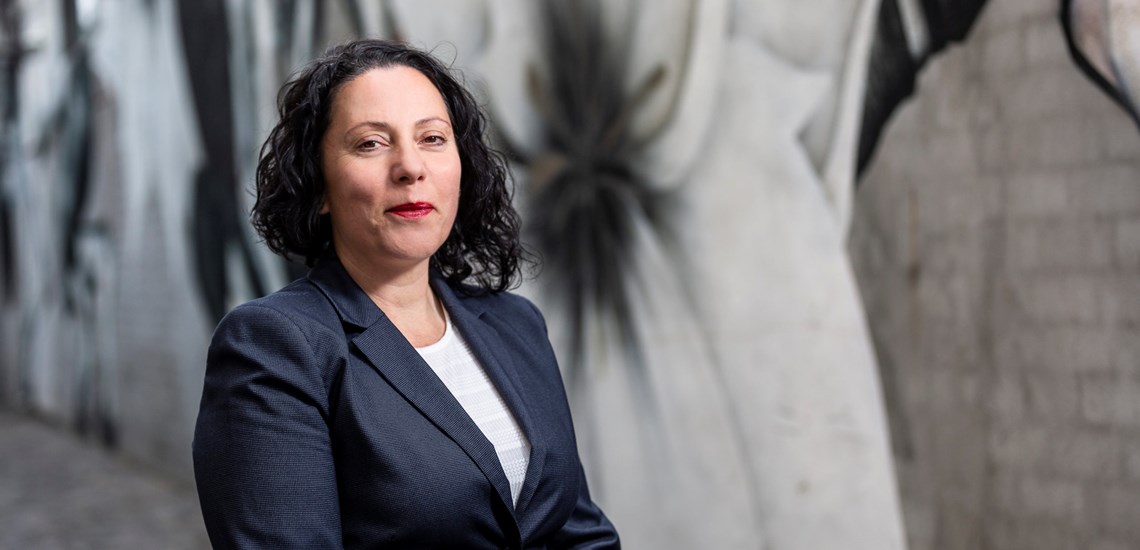Lina Goodman, CEO of Tyre Stewardship Australia, addresses the cynics
TSA Responds to NWRIC Criticism
Suggestions that shortcomings of the Tyre Product Stewardship Scheme (TPSS) were resulting in the potentially hazardous stockpiling of tyres in Queensland were misinformed and ‘simply nonsense’, according to Tyre Stewardship Australia CEO Lina Goodman.
Responding to an article entitled ‘NWRIC Calls for Enforcement in September’s Tyre and Rubber Recycling eNewsletter, Ms Goodman attributed the ‘negligent change of storage regulations during the [former Queensland Premier] Campbell Newman Government’s tenure’ as the reason for the stockpiling.
She also acknowledged that the economic impact of Covid-19 on the Australian economy had led to an increase in collection pitfalls. “Unscrupulous operators are always emerging in every waste industry, offering cheaper prices with no care for how they dispose of the waste, nor the environmental nor human health impacts,” Ms Goodman said.
“We are at a critical juncture in terms of Australians taking responsibility for our own waste and using this resource to instead create jobs, spark innovation and deliver strong environmental outcomes. “We need tyre retailers to be more vigilant than ever on who they choose to work with and how their end of life tyres are being managed,” she added.
However, she also stressed that the time for finger-pointing and laying blame was over. “With the Council of Australian Governments’ waste export ban on whole used tyres coming into effect next year now is the time for a more unified approach to the nation’s waste challenge – not division.
“Attributing the existence of stockpiles to a shortcoming of the TPSS is misinformed and misleading. The TPSS, as authorised by the Australian Competition and Consumer Commission (ACCC) is not established to clean up stockpiles. This is a function of regulation, and poor regulation leads to storage issues and stockpiles.
“It must be made clear that TSA, well as other recycling associations do not have the power to shut down organisations that stockpile. This lies solely with Government regulation.”
Ms Goodman did acknowledge that, as a voluntary organisation, TSA faced challenges. “TSA remains exposed to free-riders and external forces that undermine our objectives and those of the Scheme and the Act. “But that Is not to say TSA is just sitting on its hands,” she explained. “We are working tirelessly to ensure the effectiveness of our accreditation and compliance program to verify the end uses of ELT, both domestically and internationally.
“We established an Industry Consultative Group engaging stakeholders from all aspects of the tyre industry to work collaboratively on the issues and challenges that our industry faces on a daily basis and [find] possible solutions.
“We have also implemented various education and awareness initiatives. We continue to lobby and raise awareness with relevant Government departments and our 1700-strong accredited participants on the dangers of engaging with non-TSA accredited organisations.
“Furthermore, we have invested nearly $6 million in innovative market development research and demonstration projects that utilise Australian tyre derived products. We are now starting to see the positive tangible outcomes from these investments and the increased use of crumb rubber in a multitude of sectors and applications, in particularly the road sector.
“We need to work together – regulators, governments, industry associations and retailers – to do all we can to address the environmental and health challenges created by poor waste management.
“Moving the Scheme to a co-regulatory or mandatory approach under the Act will ensure greater economy-wide participation, increased local recovery and recycling and market development opportunities that encourage investment within Australia.”




















